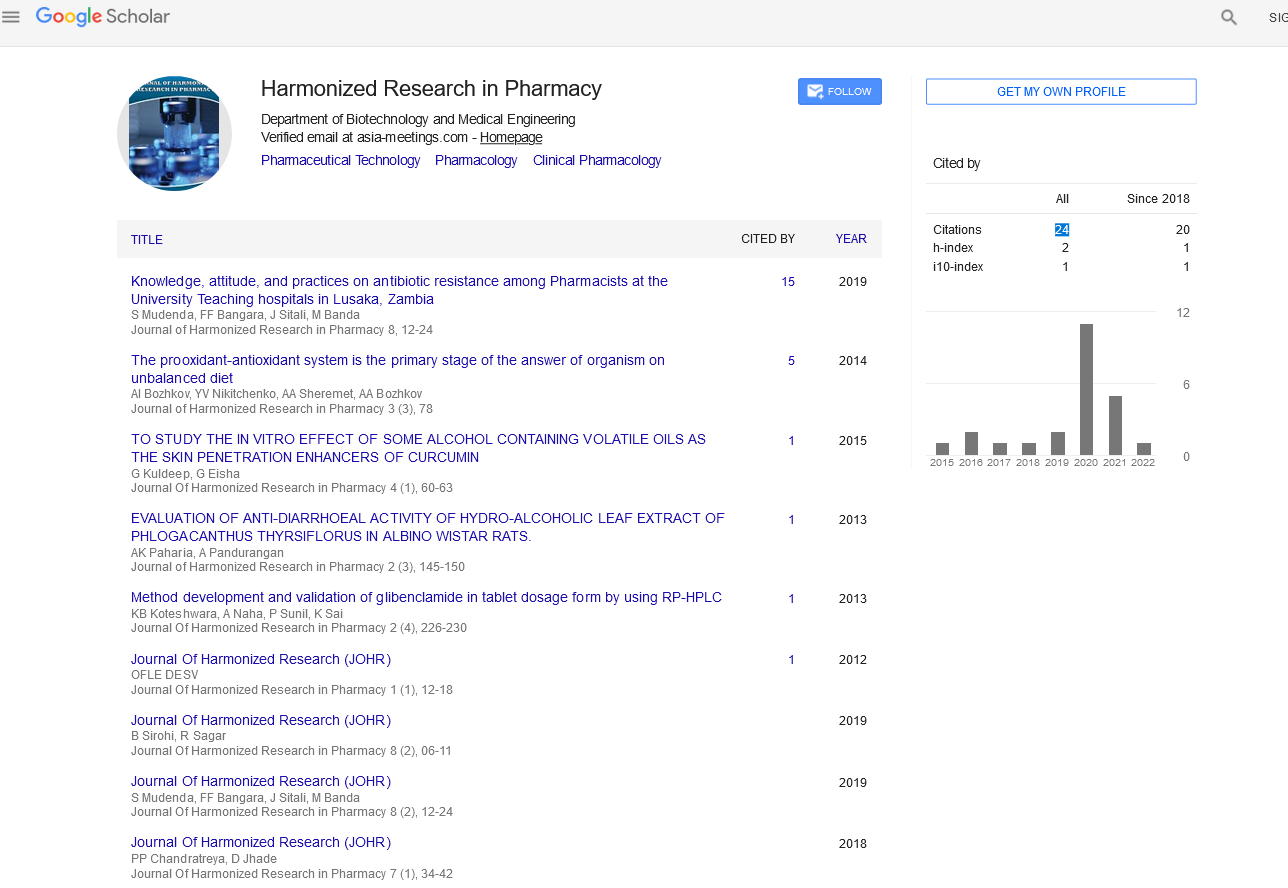A REVIEW: LIVER DISORDERS AND TREATMENTS
Abstract
Author(s): Kumar Ajay, Jitendra Bajaj*, Neeraj Upmanyu
Liver is the most complex and important organs in the human body. A total loss of liver function leads to death within minutes. Liver is the largest gland in the body. It weighs about 1.5 kg (3 to 4 p ounds), lies immediately under the diaphragm, and occupies most of the right hypochondrium and part of the epigastrium. The common disorders of the liver include cirrhosis, viral hepatitis, alcoholic liver disease, hemochromatosis, and liver cancer. Liver transplantation is often the best option for either liver cancer or cirrhosis. There is an extreme shortage in the number of donor organs available, and there are restrictions on who can receive liver transplants. Due to these problems, alternatives are constantly being sought. Some of the primary areas of research involve gene therapy, xenotransplants, and bioartificial livers.

Google Scholar citation report
Citations : 147
Journal of Harmonized Research in Pharmacy received 147 citations as per google scholar report









